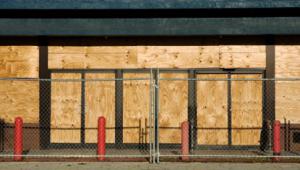The government has published a draft plan to improve air quality by reducing nitrogen dioxide levels in the UK.
A consultation was opened on Friday exploring options on how to tackle nitrogen dioxide by reducing the impact of diesel vehicles and accelerating the move to cleaner transport - this will run until June 15.
The consultation document released by the Department for Environment, Food & Rural Affairs and the Department for Transport stated that “local authorities know their areas best and are best placed to take the lead in rectifying the problem [of high concentrations of air pollutants]”.
Under the proposals councils will be required to identify areas which exceed statutory limits, where there is relevant public exposure and draw up actions plans “detailing remedial measures” to address the problem.
The plans were published after the government tried to delay its publication until after the general election but a court ruling forced them to release it before June 8.
Environmental lawyers ClientEarth, who mounted the legal challenge to get the government to publish its proposals, said the plans were “weak”.
ClientEarth CEO, James Thornton said: “We are continuing to analyse the government’s latest air quality plan, but on the face of it looks much weaker than we had hoped for.
“The court ordered the government to take this public health issue seriously and while the government says that pollution is the largest environmental risk to public health, we will still be faced with illegal air quality for years to come under these proposals.”
Thornton added: “There needs to be a national network of clean air zones which prevent the most polluting vehicles from entering the most illegally polluted streets in our towns and cities.”
He said the non-charging clean air zones proposed in the plans would not be effective in convincing motorists to stay out of those areas.
Thornton accused the government of “passing the buck” onto councils rather than taking responsibility for “this public health emergency”.











